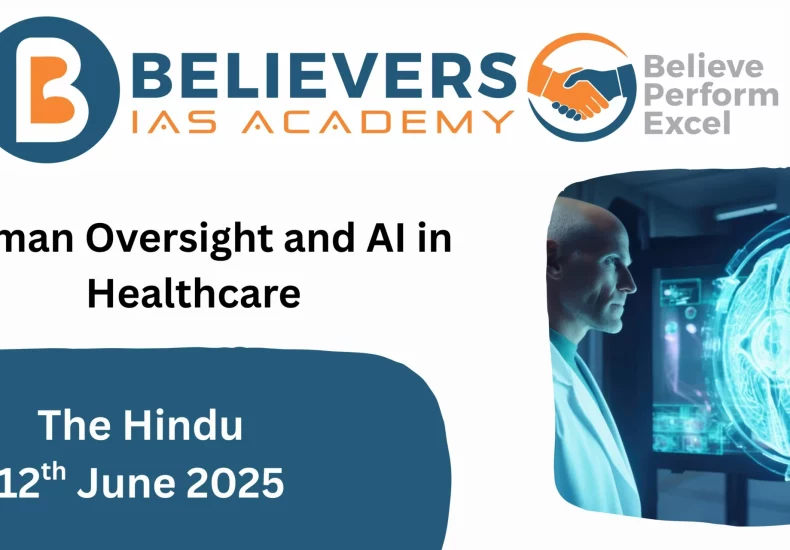Relevance
GS3: Science and Expertise
Context
AI instruments are quickly reworking healthcare with functions starting from foetal relationship and high-risk being pregnant administration to digital autopsies and medical chatbots. Nevertheless, the promise of AI comes with crucial issues together with automation bias, weak regulation, privateness points, and the necessity for human oversight.
Key Developments in India
Garbhini-GA2: AI for Foetal Courting
- Developed by IIT-Madras and Translational Well being Science and Expertise Institute.
- Educated on ultrasound scans from ~3,500 pregnant girls.
- Accuracy: Error margin of half a day, in comparison with as much as 7 days error utilizing Hadlock’s components (which relies on Western inhabitants information).
- Ongoing validation throughout various Indian datasets.
AI in Excessive-Threat Being pregnant (HRP) Administration
- Almost 50% of pregnancies in India are high-risk.
- Mumbai-based NGO ARMMAN, with UNICEF and State Governments, is utilizing AI chatbots to help auxiliary nurse-midwives (ANMs) in managing HRPs.
- AI chatbot supplies textual content and voice responses and helps decision-making.
- Challenges:
- Speech recognition limitations in regional accents.
- Human-in-the-loop important for complicated queries.
Digital Post-mortem (Virtopsy)
- Spearheaded in India by Amar Jyoti Patowary at NEIGRIHMS.
- Makes use of CT and MRI scans to create 3D fashions for autopsies.
- Benefits:
- Quicker: ~half-hour vs. ~2.5 hours in typical post-mortem.
- Permits a number of digital dissections.
- Limitations:
- Misses small mushy tissue accidents, shade adjustments, and odor cues.
- Will be enhanced by verbal post-mortem and visible examination.
AI-Assisted Affected person Knowledge Dealing with
- Instance: MediBuddy’s AI bot for preliminary analysis and medical information assortment.
- Considerations:
- Knowledge Privateness: Private information masking and role-based entry management used to guard affected person information.
- Present authorized framework (IT Act 2000, Digital Private Knowledge Safety Act 2023) lacks readability on AI-specific regulation.
Key Challenges
Automation Bias
- Over-reliance on AI suggestions by human professionals, probably resulting in misdiagnosis.
- Instance:
- A research confirmed even skilled radiologists’ accuracy dropped after they trusted incorrect AI recommendations throughout mammogram assessments.
Knowledge Privateness and Safety
- India’s information safety legal guidelines don’t explicitly regulate AI in healthcare.
- Want for strong information governance and AI accountability frameworks.
Technological Gaps
- Speech recognition fashions in AI wrestle with regional languages and accents.
- Current AI instruments have restricted adaptability to various linguistic and cultural contexts.
Means Ahead
- Human-in-the-Loop Design:
- AI ought to help, not exchange, human decision-making in healthcare.
- Sturdy Regulation:
- Replace privateness and healthcare legal guidelines to handle AI-specific challenges.
- Coaching and Sensitisation:
- Medical professionals have to be skilled to know AI’s capabilities and limitations.
- Localization of AI Fashions:
- Enhance AI’s adaptability to regional languages and cultural contexts.
- Clear Algorithms:
- Guarantee explainability and traceability in AI decision-making.
Mains Questions
- Talk about the moral and regulatory challenges of integrating Synthetic Intelligence in India’s healthcare system.
- What’s automation bias? Clarify with examples the way it can have an effect on decision-making within the healthcare sector.
- Synthetic Intelligence is revolutionizing healthcare but additionally elevating issues relating to privateness and accountability. Talk about.


Leave a Reply